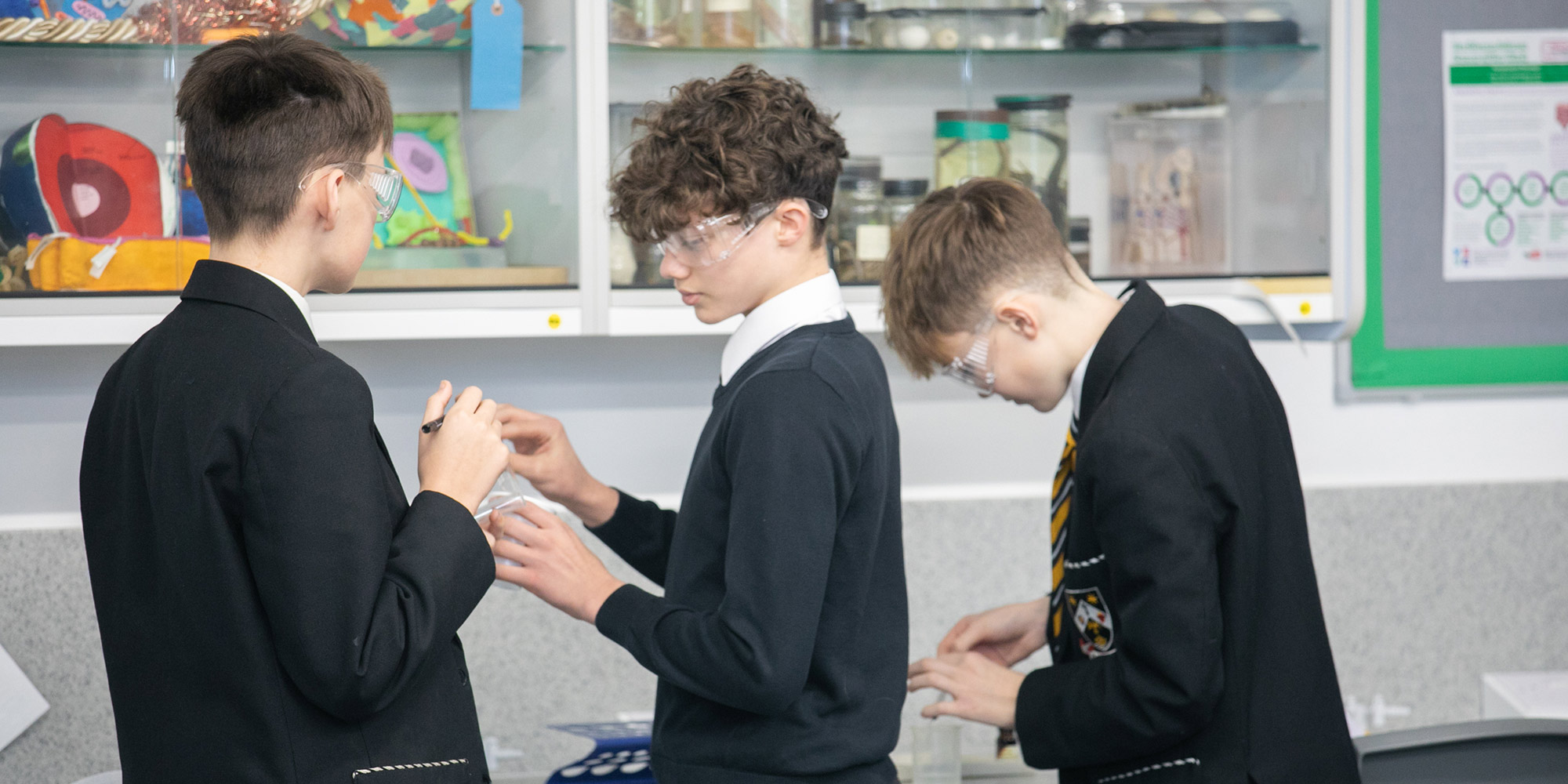Biology
The department’s vision is to develop students’ understanding of Biology, incorporating current technological advances and the contemporary challenge of media scrutiny.
We strive for every student to achieve their potential through excellent teaching and a positive learning environment.
Biology is truly a land of unlimited possibilities. We may expect it to give us the most surprising information, and we cannot guess what answers it will return in a few dozen years…. They maybe of a kind which will blow away the whole of our artificial structure of hypothesis. Sigmund Freud
Extra-curricular activities are vital because they give students opportunities to experience theory learnt in lessons. A wide and varied programme is offered, from science club, trips and lectures, to visiting speakers and competitions, including the Biology Challenge and Olympiad. Regular support for all ages is also available for homework and assessment preparation.
Biology: Senior
Course Description
Biology is a compulsory subject as part of the bigger subject of science at KS3 and KS4. It is an option at KS5.
Curriculum Overview
At Key Stage 3, all students follow a two-year science course based on the AQA KS3 specification. The course is taught in modules of Biology, Chemistry and Physics, so the students obtain a feel for each of the individual subjects. There is an emphasis on literacy, scientific method and independent research, which encourages students to explain, apply and evaluate concepts, rather than rote learning them. Biology topics include: Movement and cells, Variation and reproduction, Breathing and digestion and Photosynthesis and respiration.
This skills-based learning provides a platform from which to move on to the GCSE courses in Form 3, giving three years to fully explore all the concepts and allow time for investigative skills to be developed. All students follow the AQA specification for combined science (Trilogy) in Forms 3 and 4. At the end of Form 4 students who demonstrate academic ability and the right work ethic are offered the opportunity to study the AQA separate sciences in Form 5. Both courses are stimulating and varied, allowing students to partake in a range of practical activities, from outdoor fieldwork to dissections and model building. Attainment levels are high and many students are inspired to continue studying the subject at A level.
What are the unique selling points of studying this subject at St Columba’s College?
- Opportunity to obtain good GCSE grades from teachers, all of whom are specialists in their field.
- Extensive extra-curricular activities which include the Biology competitions – Biology Challenge at GCSE and Biology Olympiad at A-level – a day trip to Whipsnade Zoo, where the emphasis is on animal adaptations for KS3, a field trip for Form 3 to the Field Studies Council at Epping Forest, a trip to the Centre of the Cell at Queen Mary University of London for Form 5, regular clinics are offered for support, revision and assessment preparation across all Key Stages.
How are the students assessed?
Both KS4 and KS5 are assessed by exams only.
Home Learning
KS3 & KS4: once a week based on the published homework timtable for the particular year group
KS5: Most lessons will have homework set (5-6 times a week)
How can parents/guardians support their child’s learning?
- Have realistic expectations and not rely on what they did when they were at school. The way the subject is taught is very different
- Encourage their child to watch TV programmes about biologically related content e.g. David Attenborough documentaries
- Go for walks/trips/holidays and marvel at the nature and wildlife with their children. Visit museums like the Natural History and Science, but there are smaller options too like the old operating theatre or The Horniman Museum and Gardens
- Encourage students to complete homework, hand in on time and attend support clinics when necessary
- Communicate with teachers in good time if there is an issue
Useful Links
https://www.youtube.com/watch?v=clpClK-iri8&t=1s
https://www.kerboodle.com/users/login
https://www.bbc.co.uk/bitesize/examspecs/z8r997h
https://www.gcsepod.com/students/
https://senecalearning.com/en-GB/
https://www.youtube.com/c/PrimroseKittenScience
https://www.youtube.com/c/Freesciencelessons
https://www.youtube.com/playlist?list=PLidqqIGKox7X5UFT-expKIuR-i-BN3Q1g
https://www.youtube.com/playlist?list=PLAd0MSIZBSsHv1pioWRdg-pZCWTo84cdP
https://www.footprints-science.co.uk/
http://www.bozemanscience.com/biology-main-page
https://www.youtube.com/watch?v=eaNeyq4iEkw
https://www.youtube.com/channel/UCb1bDd6OobkGkv2L23oa44g/playlists?view=50&sort=dd&shelf_id=5
https://www.youtube.com/c/BioRach/playlists
https://www.youtube.com/user/MrBioTom1/featured
https://www.youtube.com/c/crashcourse/playlists


